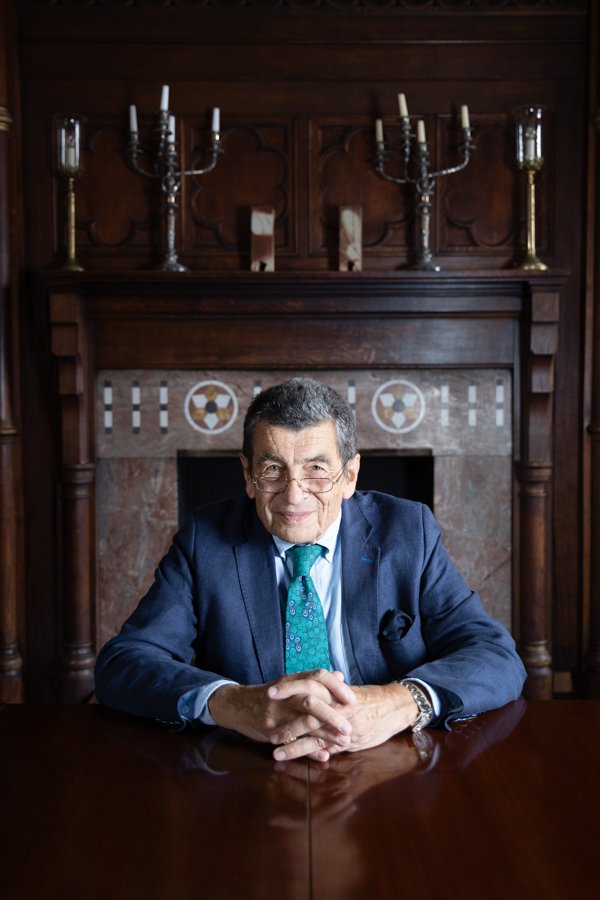Portraits III (2025)
Sir Geoffrey Nice
BA PPE 1964
QC/KC 1990
Knighted for service to International Criminal Law 2007
Hon Doctorates in Law University of Kent and University of Buckingham
Geoffrey was brought up in Catford, South London. He feels lucky to have had terrific parents—primary schoolteacher mother; father ‘in the print’, and a cleverer older brother, Roger, who led the way first to St Dunstan’s College and then on to Keble. Geoffrey got into Keble to study Maths, soon recognised as beyond him, and changed to PPE.
His philosophy tutor seemed surprised that he got any degree! Geoffrey had noted how the most confident undergraduates studied law (before disappearing into the City) so he read law part-time. He became a barrister in 1971, and a QC/KC in 1990. Along the way, he failed as SDP/Lib Dem Parliamentary candidate twice in the 1980s.
He much enjoyed the Bar—common law—and was a part-time judge (Recorder) for 34 years. He got a job for the UN in the Yugoslav Tribunal in 1998 though luck and chance. Geoffrey found the work unbeatably interesting (but the UN structures unbeatably difficult). He prosecuted the Tribunal’s first genocide case to reach a non-conclusion (Goran Jelisić), then a Bosnian Croat case (Dario Kordić and Mario Čerkez) and—after a break—Slobodan Milošević, former President of Serbia, who died before the Judgment was delivered.
Supported throughout by his endlessly understanding acupuncturist wife Philippa and three daughters, he co-founded the Geoffrey Nice Foundation in 2014, and, following other work in international courts and for NGOs, was drawn into informal tribunals. He slowly saw their potential value. He chaired the China Tribunal 2017–2019 into the forced organ harvesting of prisoners of conscience (primarily Falun Gong practitioners) and the Uyghur Tribunal 2020–2022 into the persecution of Uyghurs where one form of Genocide was found proved.
“Unaware—as all were—of being in the ‘swinging sixties’ and at the beginning of end of public-school dominance of unisex Oxbridge colleges, Keble pushed us gently into a changing world, confident and never having—although always happy—to look back.”
He continues to “battle on”.
